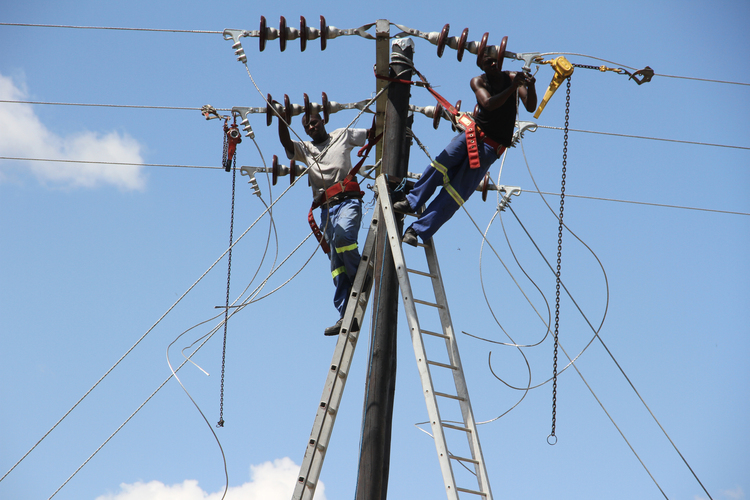
The Sunday Mail

Enacy Mapakame
THE Confederation of Zimbabwe Industries is worried about the implications that an electricity tariff hike will have on local industry and has indicated that it will engage the Zimbabwe Electricity of Supply Authority to defer the planned increase.
A fortnight ago, Energy and Power Development Minister Dr Samuel Undenge told industry during a Zimbabwe National Chamber of Commerce (ZNCC) breakfast meeting in Harare that electricity tariffs have to rise by 40 percent next year in order to boost new contingency investments into power.
Companies have had to rely on alternative power sources such as diesel-powered generators as electricity generation has declined due to reduced water levels at Kariba Dam.
Statistics from the Zimbabwe Power Corporation (ZPC) show that as at October 29, 2015; Zimbabwe was generating 879 mega watts (MW) against a demand of 2 200MW.
CZI president Mr Busisa Moyo indicated last week that any tariff increase would be unsustainable as it would increase production costs at a time when local companies are already uncompetitive.
“We understand there is a crisis but I think we need to have a conversation and see how this can be resolved,” said Mr Moyo in an interview last week.
“It will obviously mean the cost of products will go up at a time when we need to bring down the costs, so this is going the wrong direction.
“We do not see how this (tariff increase) will solve the problem. It will exacerbate the pain on business. It will create more defaults and more non-performing loans, we advise against it.”
Zesa Holdings Ltd intends to increase tariffs by 42 percent from the current US9,86c per kilowatt hour to US14c per kilowatt hour.
As an emergency measure to improve local power supply, Zesa is planning to operate 320MW back-up diesel-powered electric plants beginning February 2016.
As it is, Zimbabweans are paying less for electricity than other regional consumers.
The African Development Bank noted that in 2010, the average effective electricity tariff in Africa was US0,14 per kilowatt-hour (kWh) against an average of US $0,18 per kWh in production costs.
Seven years ago, Zimbabweans were paying almost half of the regional average.
The proposed tariff increase comes in the wake of a recent report from CZI that shows that capacity in the manufacturing sector dropped to 34 percent this year from 36,6 percent a year ago.
Zimbabwe Energy Regulatory Authority (ZERA) chief executive officer Engineer Gloria Magombo, the industry regulator, has since said a tariff increase next year is inevitable.
“We have not received an application from them (Zesa) yet. Right now there is no other alternative power to substitute the Kariba shortfall so a tariff hike is inevitable if power generation and supply is to be improved.
“The power shortage is being caused by circumstances beyond Zesa’s control. Consumers may complain but there is need to consider the cost of not having electricity at all, which is more than embracing a slight increase.”
However, not everyone is embracing such realism.
Consumer interest body, the Consumer Council of Zimbabwe executive director, Ms Rosemary Siyachitema said the timing of the increase is both wrong and insensitive.
She said it comes at a time when consumers are struggling with multiple economic challenges, adding that even when the increase was to be effected, there was no guarantee that power supplies would be consistently reliable and available.
“We have heard that we are not generating enough power from both Hwange and Kariba power stations, but I do not know if this is the right time for tariff increases.
“It is up to Zesa to find an investor for alternative sources of energy and increase generation in the country, not for the consumer to carry the burden of funding such projects. The consumer is already constrained due to shortages.
“What we want to hear is how and when they are going to increase power generation. At the moment people are staying in the dark because power generation is low,” said Ms Siyachitema.
Both domestic and industrial consumers have been forced to use alternative sources of energy like diesel generators, gas, firewood and solar due to the unsustainable power cuts.
Zesa is working on various projects, including expansion of existing power plants that will produce over 3 000MW in the next six years.
Experts also believe that there is rampant energy loss due to inefficient use.



